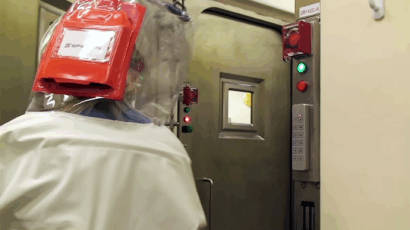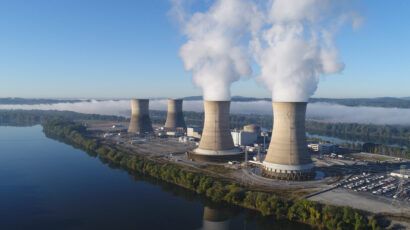Locking down the NPT
By Henry Sokolski, Victor Gilinsky | June 17, 2009
President Barack Obama recently spoke of the Nuclear Non-Proliferation Treaty’s (NPT) importance, as has every president since Lyndon B. Johnson who signed the treaty in 1968. Yet they have all, to a lesser or greater degree, weakened the treaty, through lax enforcement, by carving out exceptions for certain countries, or by just ignoring it. We have come to the point now that North Korea, which signed the treaty in 1985, is now mocking it. And in all the discussions over a possible Iranian bomb, no one seems to think the treaty’s 90-day withdrawal clause would be much of a hurdle if Tehran decided to leave the NPT.
If President Obama really wants to strengthen the treaty, a good–and necessary–place to start is to make it much more difficult for any of the 189 member states to leave the NPT. It is at odds with the NPT’s purpose to allow a country to import or develop technology under the treaty’s cover and then walk out to make bombs. At a minimum, before legally exiting the treaty, a country should have to clear its NPT obligations by returning whatever it got from others based on the understanding that it was a good-faith treaty member.
The background of the North Korean bomb is instructive. The International Atomic Energy Agency (IAEA), of which the United States is the most prominent member, allowed North Korea to drag out its obligation to undergo a thorough initial IAEA inspection within 18 months of signing and ratifying the NPT. The inspection did not start until 1992, by which time Pyongyang already had illicitly separated plutonium. When the inspectors insisted on inspecting two waste sites that might reveal this, the North Koreans tossed them out and threatened to pull out of the treaty altogether.
The international reaction to this behavior was not to treat North Korea as an NPT violator but to beseech it to remain in the treaty. The United States went so far as to offer two large light water reactors (with South Korea and Japan footing the $5 billion bill), and to agree to shield the North for years from the NPT’s inspection requirements in return for a halt in North Korean plutonium production. When it later looked as if Washington would ultimately insist on inspection, the North announced it was withdrawing from the treaty anyhow. This led to lots of diplomatic hand wringing in NPT-signatory state capitals, but not a peep that Pyongyang couldn’t legally quit the NPT.
Such a permissive interpretation of the withdrawal clause must change to one that conforms to the treaty’s purpose–no matter how awkward or late in the game. The international community should insist that North Korea is still an NPT member and that, among its other obligations, it must permit the basic IAEA inspections that never took place in 1992.
The predictable reaction to this proposal, in some quarters, will be that North Korea’s actions can’t be reversed by international pressure, and that the NPT’s withdrawal clause, which was made deliberately permissive to entice prospective member states, can’t be reinterpreted. Yet, Defense Secretary Robert Gates has already committed the United States to reversing North Korea’s nuclear status, and if we don’t reinterpret the treaty we will be writing it off as a serious commitment. International legal obligations do matter and being branded as a treaty violator has consequences internationally. Even Pyongyang seems to sense this and keeps repeating that it acted legally in leaving the NPT. For example, in its June 14 statement defending its right to test nuclear weapons it insisted, “[North Korea’s] second nuclear test . . . does not run counter to any international law.”
To make a new approach stick we will need the broad support of NPT members. But that won’t happen until the United States steps forward to announce a new and tougher standard for withdrawal. This might not be welcomed by those self-styled realists who believe insisting on strict NPT compliance gets in the way of reaching accommodations with difficult countries. But a permissive approach didn’t work with North Korea and has done great harm to the treaty overall.
Which brings us to Iran: Tehran imported considerable nuclear technology as a treaty member, most prominently from Russia for its Bushehr nuclear power plant project. We should make clear now that if it, or any other country, chooses to withdraw from the NPT, they would be obligated to return or cease using such imports before they could clear their treaty accounts. Lacking that, they would be international outlaws. Raising the bar to withdrawal is an essential first step in strengthening the treaty to deter would-be bomb makers.
Together, we make the world safer.
The Bulletin elevates expert voices above the noise. But as an independent nonprofit organization, our operations depend on the support of readers like you. Help us continue to deliver quality journalism that holds leaders accountable. Your support of our work at any level is important. In return, we promise our coverage will be understandable, influential, vigilant, solution-oriented, and fair-minded. Together we can make a difference.
Topics: Nuclear Energy, Nuclear Weapons, Opinion
















